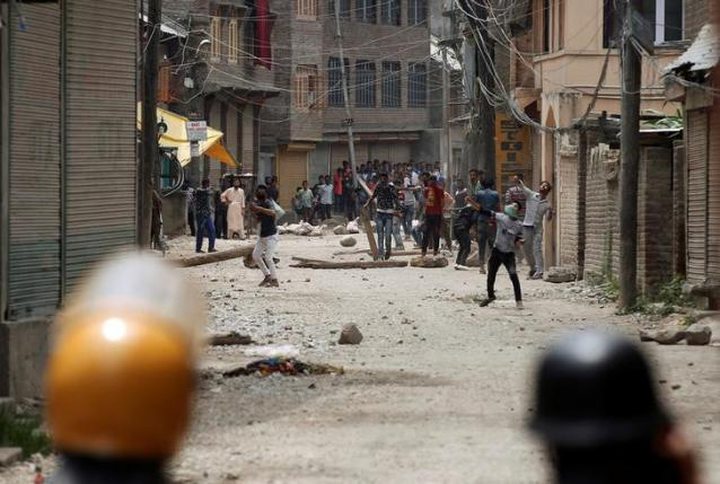Death Toll Rises in Jammu and Kashmir During Protests Over Separatist’s Death

The death toll from two days of violence rose to at least 19 on Sunday, according to a police official in Srinagar, the state’s summer capital, who requested anonymity because he was not authorized to speak with reporters.
In addition to the protesters who were killed, a policeman died when protesters pushed the vehicle he had been driving into the Jhelum River, the police said in a statement on Sunday.
The demonstrations began Saturday after security forces killed Burhan Muzaffar Wani, a young commander for the Hizbul Mujahedeen, a Kashmiri rebel group.
Mr. Wani had become a prominent face of separatist sentiment in the Kashmir valley, an area at the center of an independence movement that has waned since its peak in the 1990s, at the height of an insurgency, but that has never completely disappeared.
Both Indiai and Pakistan claim the disputed territory of Kashmir.
Security forces have been accused of human rights abuses while struggling to contain the insurgency and its aftermath.
The police statement said protesters throughout the valley had attacked police stations, police cars, a fire truck and a railway station, setting fire to security vehicles and government property. The statement also said individuals the police suspect to be militants either lobbed grenades or fired at security officers in three areas of the valley.
Curfew continued in the entire valley of Kashmir on Sunday; mobile internet and train services were suspended.
Hospitals in Kashmir received more than 400 injured, said Dr. Adil Ashraf of the Shri Maharaja Hari Singh Hospital in Srinagar. He said his hospital alone had received more than 130 wounded people in the past two days, most with pellet and bullet injuries.
Dr. Ashraf, whose hospital receives information about casualties from all government hospitals in the valley, said 22 people had died in the violence in the past two days.
The Jammu and Kashmir Coalition for Civil Society said in a statement on Sunday that police and security forces had “assaulted the patients and attendants inside the hospitals and ambulances.”
Mr. Wani had become prominent in the valley in part because he was the rare example of a local rebel who had attached his face to his cause. He was active on social media, garnering a following as he posted photographs of himself and his associates in battle fatigues, often carrying arms.
“He was not personally associated with violence so much, but was associated with leadership,” said Syed Ata Hasnain, a retired Indian Army general who spent more than two decades serving in Kashmir. He said Mr. Wani had “conveyed the message of azadi,” or freedom, a word that has been a battle cry in Kashmir for decades.
But the scale of the outpouring of anger at the security establishment that Kashmir witnessed over the weekend could not be explained by Mr. Wani’s appeal alone, some analysts said.
Gull Mohammad Wani, a professor of political science at the University of Kashmir, said the outpouring of anger could be blamed on the lack of outreach from the government to the freedom-seeking elements in the valley, a reticence that he said had been exacerbated by the government led by Prime Minister Narendra Modi.
Mr. Wani lamented that violence in Kashmir had become “the only means of communicating with Delhi or the rest of the world.”
“A political response from the government is missing,” said Mohammed Yousuf Tarigami, a lawmaker in Kashmir for the past two decades.





